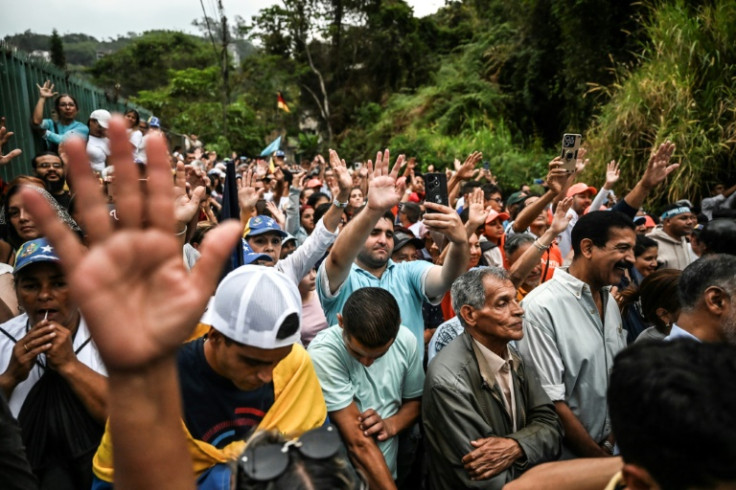
SEATTLE - More than a decade into Venezuela's complex crisis, people in the South American country are turning to odd jobs to make ends meet and bring some food to their family table. That is the case for middle school teacher Cruz Brito, a resident in the city of Maturin who tries to earn extra money by playing casino games on a smartphone app in the evenings.
Talking to the Associated Press, Brito said she has about $27 in her bank account —which she earned by playing roulette on her smartphone — and has a single can of sardines at home. Deeply immersed in an economic crisis that has transformed Venezuela, Brito hopes the presidential elections set to be held on July 28th can put an end to the distress by electing a new president.
"I have cried because I have not had to eat," Brito said. "We haven't migrated — first, because I have my mom and dad here, and second, because I believe in God and I believe that we are going to get through this. But if not, I do have to leave unfortunately with a broken heart, like all those who have emigrated."
The refugee agency UNHCR estimates that more than 7.7 million Venezuelans have left since 2014, mostly to Latin American countries. But over the last year, the number of migrants from Venezuela trying to enter the U.S. through its border with Mexico has increased exponentially. U.S. Customs and Border Patrol agents have encountered almost 200,000 Venezuelans in the last 11 months, compared to only 2,700 such encounters in all of 2020.
Wages in Venezuela are making it virtually impossible to even get a basic basket of goods. Families across the once prosperous South American country need at least $385 a month to buy a basic basket of goods that includes 1 liter (quart) of vegetable oil; 1 kilogram (2 pounds) each of rice, sugar, potatoes, bananas and ground beef; half a kilo (1 pound) of beans; and at least 12 eggs. But more than three-quarters of the population lives on less than $1.90 a day, which is the international benchmark of extreme poverty.
According to a U.N. special rapporteur who visited the country earlier in 2024, almost 82% of Venezuelans live in poverty, with 53% in extreme poverty.
Despite their needs, the country's minimum wage, 130 Venezuelan bolivares, has not changed since its last increase in April of 2022. In fact, the value of the bolivares has depreciated. In 2022, the country's minimum wage was equivalent to about $30 a month. Variations in currency exchange rates have now reduced it to $3.50.
Last September, a U.N. report estimated it would cost over $795 million to help about 5.2 million people in Venezuela through health, education, water and sanitation and food.
"Getting to the supermarket, grabbing a cart and shopping around, I don't know what that is anymore," Brito, 47, said. "I used to buy a whole chicken, now I don't even buy half a chicken. I have had to buy three eggs because I can no longer buy a carton of eggs."
© 2025 Latin Times. All rights reserved. Do not reproduce without permission.






